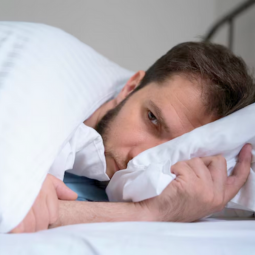We Provide Help for a range of Mental Health Concerns
Overview
Insomnia, sleep disturbance
Insomnia is a common sleep disorder characterized by difficulty falling asleep, staying asleep, or experiencing non-restorative sleep despite adequate opportunity for sleep. It can lead to daytime fatigue, irritability, difficulty concentrating, and impaired functioning in daily activities. Insomnia can be acute (short-term) or chronic (long-term) and may be caused by various factors, including stress, anxiety, depression, medical conditions, medications, lifestyle habits, or environmental factors.
Here are some ways to help manage insomnia:
- Sleep hygiene: Encouraging good sleep hygiene practices can help improve sleep quality and establish healthy sleep patterns. This includes maintaining a consistent sleep schedule, creating a relaxing bedtime routine, optimizing the sleep environment (e.g., comfortable mattress, dark, quiet, and cool room), avoiding stimulants (e.g., caffeine, nicotine) and electronic devices before bedtime, and promoting relaxation techniques (e.g., deep breathing, progressive muscle relaxation) to prepare the body and mind for sleep.
- Cognitive-behavioral therapy for insomnia (CBT-I): CBT-I is a structured, evidence-based therapy that focuses on changing thoughts, behaviors, and attitudes related to sleep. It may include techniques such as stimulus control (associating the bed with sleep), sleep restriction (limiting time in bed to increase sleep efficiency), relaxation training, cognitive therapy (identifying and challenging negative thoughts about sleep), and sleep education. CBT-I has been shown to be effective in improving sleep quality and duration for individuals with insomnia.
- Medication: In some cases, medications such as sedative-hypnotics (e.g., benzodiazepines, non-benzodiazepine receptor agonists) or antidepressants may be prescribed to help manage insomnia symptoms, especially in the short term or when non-pharmacological interventions alone are insufficient. However, medication should be used cautiously and under the guidance of a psychiatrist due to potential side effects, risk of dependence, and limited long-term efficacy.
- Address underlying causes: Identifying and addressing underlying factors contributing to insomnia, such as stress, anxiety, depression, medical conditions (e.g., sleep apnea, restless legs syndrome), pain, medications, or lifestyle habits (e.g., irregular sleep schedule, excessive caffeine or alcohol consumption, lack of physical activity) is essential for effective management. Treating underlying conditions, adjusting medications, and making lifestyle modifications can help improve sleep quality and reduce insomnia symptoms.
- Relaxation techniques: Practicing relaxation techniques, such as mindfulness meditation, progressive muscle relaxation, guided imagery, or aromatherapy, can help calm the mind and body, reduce stress and anxiety, and promote relaxation before bedtime. These techniques can be incorporated into a bedtime routine to facilitate sleep onset and improve sleep quality.
- Stimulus control: Stimulus control techniques involve associating the bed and bedroom with sleep and avoiding activities that may interfere with sleep, such as watching TV, using electronic devices, or engaging in stimulating activities in bed. By creating a consistent sleep environment and bedtime routine, individuals can condition themselves to associate the bedroom with relaxation and sleep, which can help improve sleep onset and continuity.
- Lifestyle modifications: Making lifestyle modifications to promote overall health and well-being can also improve sleep quality and reduce insomnia symptoms. This may include regular exercise (but avoiding vigorous exercise close to bedtime), maintaining a healthy diet, managing stress through relaxation techniques or stress management strategies, limiting caffeine and alcohol intake, and avoiding large meals, nicotine, and stimulating activities before bedtime.
It’s essential to approach insomnia treatment holistically and tailor interventions to the individual’s specific needs, preferences, and circumstances. By addressing underlying factors contributing to insomnia and implementing evidence-based strategies to improve sleep hygiene and promote relaxation, healthcare professionals can help individuals manage insomnia symptoms and improve overall sleep quality and well-being.


